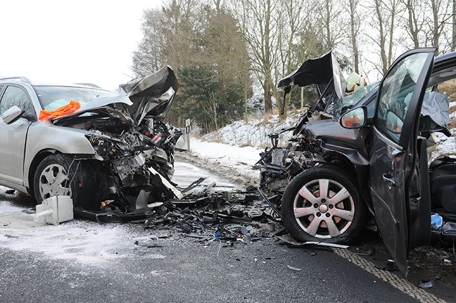You may just think about your doctor as the person who is there to help you get better. But after a serious injury, your doctor and care team – and the communication you have with them – can end up being the most important parts of your personal injury case. Our team at Gaddis, Herd, Craw & Adams, P.C. can assist in helping you understand what you can do to make sure these two parts of your recovery work together.
Follow these five steps to protect both your case and your care:
1. Focus on Fit
You should have the same sense of “fit” with your doctor that you (hopefully) felt when picking your lawyer. Ask yourself, do your care providers:
- Take time with you or seem rushed?
- Listen and take your concerns seriously?
- Remember what you said in earlier visits?
- Send you to other providers as needed?
If the answers to these questions don’t feel right, you and your doctor might not be a match. If it’s not a good fit, move on – now, not later.
2. Speak Up
You need to let your doctor know all the difficulties you’re having. Most importantly, doing so helps your care team provide you with complete and thorough treatment. But doing so also helps document your difficulties along the way. Your medical records are one of the first places the other side looks to fight your case. They will give you a tough time for any problems or symptoms you say you have had that aren’t in the record. So, don’t try and be brave about what’s going on. Instead, speak up and let your doctor know the symptoms, struggles, and other issues your injury has caused throughout your treatment and recovery.
3. Follow Your Doctor's Advice
The other side will make a big deal out of any doctor’s orders you don’t follow – so do your best to do what your doctors say. If you don’t understand what they want you to do, ask a follow-up question. If you disagree with the treatment plan, make sure to say something instead of just not “following through.” And if you try to follow through but have problems, be sure to let the doctor’s office know, make a note of the call, and confirm that it is in your chart on your next visit.
4. Look Out for Lawsuit Bias
Some doctors just don’t want to get involved with lawsuits. You need good providers that care about you – and that should include caring that you get the compensation you deserve if someone else is responsible for your injury. You can ask your lawyer if they know your doctor. You can also talk about it with your doctor or provider.
Questions to ask include:
- How does your office work with patients who are part of a lawsuit?
- Who is the best person to communicate with my lawyer?
- How often do you personally get involved when a patient has an injury like mine and must bring a claim?
Listen closely to the answers you get. Paying attention to tone and body language too. Together, you will figure out if the doctor has any difficulty with patients with legal claims. If you think they do or something doesn’t feel right, consider making a change or discussing the situation with your lawyers. We appreciate this can be hard in today’s challenging health insurance times, but it may be worth it because of how important it is to your health, recovery, and getting you the care you need.
5. Good Communication With Your Care Team
Going to the doctor can often be frustrating. Long waits, forgotten details, or curt staff all get harder to handle with an injury. Still, try to keep your patience because they can really help you build a strong relationship with your whole care team. Try to be on time and patient if you need to wait. Your doctor often has little control over scheduling. Take the time to learn the names of nurses and other support staff. Often, you can contact them directly and get what you need without having to involve the doctor. Always call to cancel an appointment when you have an important conflict. Doctors’ offices don’t like no-shows because they can be expensive and take time from others who need care. More importantly, those “no shows” can work against your efforts to prove how much you want to do whatever is necessary to get better.
Good Communication is essential in your relationship with your care providers. Let them know your symptoms, difficulty, and how your injuries are affecting you, so you can get the best care possible and work hard to improve.
If you or a loved one have suffered a serious or fatal injury due to negligence, call Gaddis, Herd, Craw & Adams, P.C. to request a free consultation today at (719) 625-3310.

